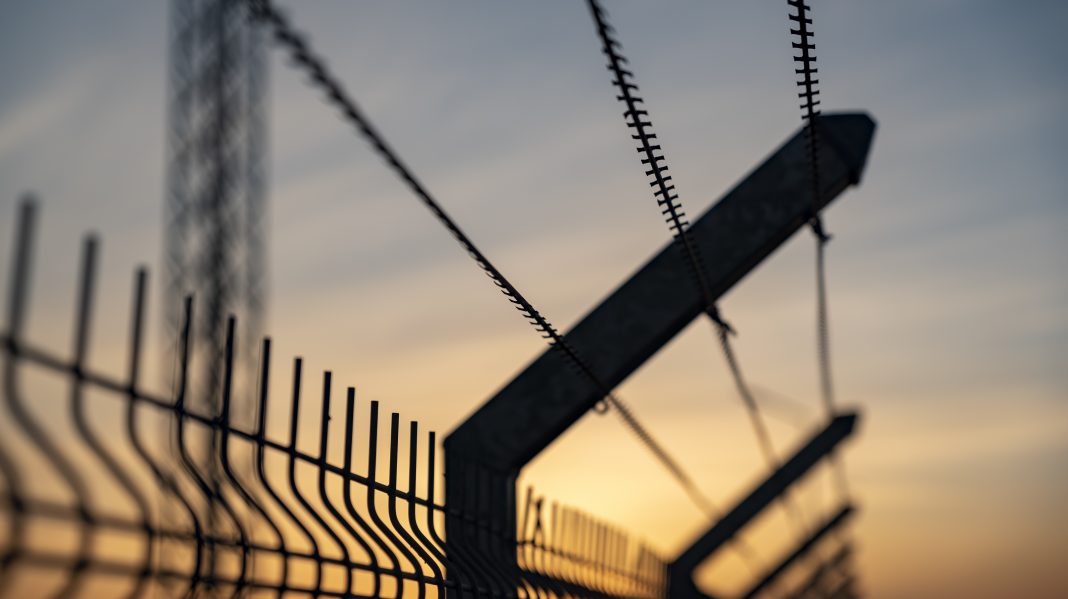Cuba’s political prisoners total 1,066, with 11 new cases in February, highlighting the systematic violation of rights in all cases of political imprisonment in Cuba
On March 2, 2023, Prisoners Defenders attended the Assembly Hall of the General Council of the Spanish Ba was joined by Vice-President of the European Parliament Dita Charanzová, the MEP Javier Nart, the Italian Senator Giulio Terzi Di Sant’Agata, the President of the Subcommittee on Immigration and International Protection of the General Council of Spanish Lawyers, Blas Jesús Imbroda and the Venezuelan lawyer and opposition leader Antonio Ledezma, in the Assembly Hall of the General Council of the Spanish Bar, to present the complaint which demonstrates, with legal rigour, the systematic violation of rights in all cases of political imprisonment in Cuba. This complaint is being presented to the United Nations and discusses the broad patterns of violation of fundamental rights at all stages of the criminal process, from arrest to sentencing.
More than 5,000 pages of legal work have been produced by a team of more than ten jurists. The framework of the complaint can be examined in detail in 5 languages:
- Complaint in Spanish (ES)
- Complaint en Español (EN)
- Complaint in Italian (IT)
- Plainte en français (FR)
- Reklamation auf Deutsch (DE)
Absence of judicial protection for the precautionary deprivation of liberty
So far, the 400+ judicial proceedings of political prisoners monitored and analyzed by PD demonstrate the total violation of the most elementary procedural principles.
Absence of judicial protection for the precautionary deprivation of liberty, as protected by the Law of Criminal Procedure in Cuba, which, in a mockery of the normative procedural definition, calls a State Security police officer a “Criminal Instructor”, who may keep the defendant in provisional detention until the prosecutor’s ruling, without any judicial intervention being required in any case.
Furthermore, there are no independent defence attorneys in Cuba. All of them, by normative definition, organically, hierarchically, and economically, are dependent on the State. This means they join the work of the prosecutor’s office and act as “soft” prosecutors in the processes of political persecution.
As protected by the “Constitution” and the Laws, the hierarchy and judges which form the penal system are absolutely and organically dependent upon political power. This attribution from the single party that the “Constitution” of 2019 defines as “the superior leading force of society and the State”, which has been in the hands of a family since the beginning of the “revolution”.
Criminal proceedings in which all accusations, without exception, are supported solely by “witnesses” dependent on the communist party and by fraudulent “expert” evidence which only the Ministry of the Interior, the accusing party, is allowed to present. This results in convictions based exclusively, for example, on the alleged interpretation of the sense of smell of animals (dogs). This is without even allowing the accused to present alternative expert evidence.
Criminal proceedings against fundamental rights
Criminal proceedings against an endless range of fundamental rights. This includes:
- Freedom of expression, demonstration, and association
- Leaving or entering the country
- The right to privacy
The aforementioned, and many other rights, make the normal development of society possible. But this is not the case in Cuba.
Use of the criminal types from the Penal Code allow the unlimited criminalization of any conduct that the regime wishes to penalize. This has already been declared invalid by different organizations of the United Nations and the Inter-American Commission on Human Rights, such as Public Disorder, Disobedience, Disrespect, Assault, Resistance, Sedition, Instigation to Commit a Crime, Pre-criminal Social Dangerousness, or Propagation of an Epidemic.
Widespread use of summary and abbreviated criminal procedures that violate, to the point of protection in their definition, the absence of defence, the right to contradiction or the mere communication of the accusation to the victims, as well as any hint of equality of legal arms between the parties, such as the summary procedure by Direct Attestation, among others, and that allows for final convictions with deprivation of liberty in just a matter of a few dozen hours.
As of February 28, 2023, Cuba’s political prisoners’ list contains a total of 1,066 political prisoners and prisoners of conscience suffering judicial sentences or provisions limiting their freedom by prosecutors without any judicial supervision or legal defence. This is in flagrant violation of international law that protects due process and effective defence.
Every month PD publishes and distributes this list among political, diplomatic and human rights defence spheres. In the last 12 months alone PD has confirmed and added to our list 282 new political prisoners.
34 of Cuba’s political prisoners are minors
In February, 11 new political prisoners entered our list. This is largely the result of the persecution of activists who assist the families of political prisoners in making their situation visible.
March also saw 22 political prisoners were removed from our list, the vast majority after serving their full sentences.
Prisoners Defenders has verified a list of 1,066 political prisoners as of 02/28/2023. Of the 1,066 political prisoners:
- There are still 30 boys and four girls on the list, a total of 34 minors
- 116 women (including several transgender women) are still under political and conscience convictions and sentences











